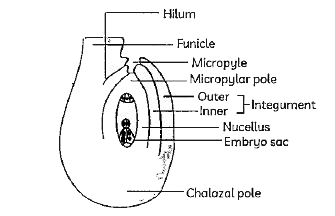Define the process of differentiation.
Step-by-Step Solution:
1. Understanding Differentiation: Differentiation is a biological process that involves the transformation of unspecialized cells into specialized cells.
2. Nature of Unspecialized Cells: Unspecialized cells, also known as stem cells, are cells that have not yet developed into a specific type of cell with a particular function.
3. Transformation Process: During differentiation, these unspecialized cells undergo changes that allow them to develop specific functions and characteristics. This includes alterations in their shape, size, and functional capabilities.
4. Specialization: As a result of differentiation, the unspecialized cells become specialized cells. These specialized cells are tailored to perform specific tasks within an organism, such as muscle cells, nerve cells, or blood cells.
5. Conclusion: In summary, differentiation is the process by which unspecialized cells transform into specialized cells, acquiring distinct shapes, sizes, and functions necessary for their roles in the body.
Topper's Solved these Questions
- TISSUES BOOK - MTG IIT JEE FOUNDATIONCHAPTER - TISSUES EXERCISE - EXERCISE (Subjective Questions (Short Answer Type))
19 Videos
- TISSUES BOOK - MTG IIT JEE FOUNDATIONCHAPTER - TISSUES EXERCISE - EXERCISE (Subjective Questions (Long Answer Type))
20 Videos
- TISSUES BOOK - MTG IIT JEE FOUNDATIONCHAPTER - TISSUES EXERCISE - EXERCISE (Assertion & Reason Type )
10 Videos
- NATURAL RESOURCESBOOK - MTG IIT JEE FOUNDATIONCHAPTER - NATURAL RESOURCESEXERCISE - Olympiad/HOTS Corner
11 Videos
- WHY DO WE FALL ILL?BOOK - MTG IIT JEE FOUNDATIONCHAPTER - WHY DO WE FALL ILL?EXERCISE - OLYMPIAD/HOTS CORNER
10 Videos
Similar Questions
Knowledge Check
The process of differential extraction is based upon
Adifferent solubilitiesBdifferent molecular massesCdifferent boiling points —Ddifferent chemical properties
Define product differentiation.
View SolutionDefine the processes of oxidation and reduction with example.
View SolutionDefine the processes of oxidation and reduction . Show that these two processes occur simultaneously .
View SolutionMegasporogenesis is defined as the process of formation of megaspores from the megaspore mother cell (MMC). MMC is a diploid cell This process occurs inside the nucellus of the developing ovule.

Ovules generally differentiate a Megaspore mother cell/s in the micropylar region of the nucellus.
View SolutionDefine cell differentiation.
View Solution(a) Define transcription.
(b) Describe in brief the process of transcription.
View Solution(a) Define transcription.
(b) Describe in brief process of transcription.
View Solution
